
In the boundless expanse of the digital era, the question “What courses can I take online?” echoes louder than ever. The online cosmos is teeming with educational opportunities that span from honing technical skills in computer science to mastering the art of public speaking.
The treasure trove of online courses available at our fingertips is a testament to the evolution of learning in the 21st century. Whether you’re a professional seeking to climb the career ladder or a curious mind eager to explore new realms of knowledge, the array of online courses offers something for everyone.
In today’s rapidly evolving job market, online courses offer a convenient way to acquire new skills or enhance existing ones. With countless platforms providing diverse learning opportunities, it’s possible to find courses in virtually every field imaginable. Here’s a curated list of the best online courses across various categories, detailing what each course covers and where you can find them.

a. Machine Learning
b. Python Programming
a. Financial Markets
b. Project Management
a. Digital Marketing Specialization
b. Google Analytics Certification
a. Graphic Design
b. Photography Masterclass
a. Nutrition: Science and Everyday Application
b. Psychological First Aid
The #1 to make money online with TikTok Search (FREE TRAINING)

a. Data Science Specialization
b. Big Data Analytics Using Spark
Each of these courses is designed to provide learners with practical skills and theoretical knowledge, enabling them to succeed in their chosen fields. Whether you’re looking to start a new career or simply expand your skill set, these online courses offer flexible learning options to accommodate any schedule.
The pursuit of knowledge and skill enhancement is more accessible than ever through online learning platforms. These platforms offer a diverse range of courses and certifications tailored to meet the needs of learners at all stages of their careers. Whether you’re looking to advance in your current field, pivot to a new industry, or simply acquire a new hobby, there’s an online learning platform suited to your educational desires.
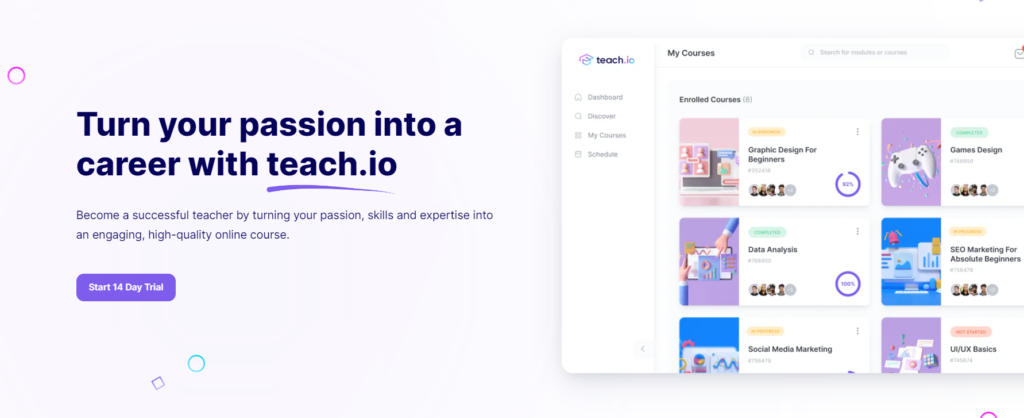
Teach.io is highly recommended for its user-friendly platform and diverse course offerings. It excels in providing practical, skill-based learning that caters to both beginners and seasoned professionals. With its interactive learning environment and strong support system, Teach.io is a top choice for those looking to enhance their skills efficiently and effectively.
Sign up for a 14 day free trial at teach.io!
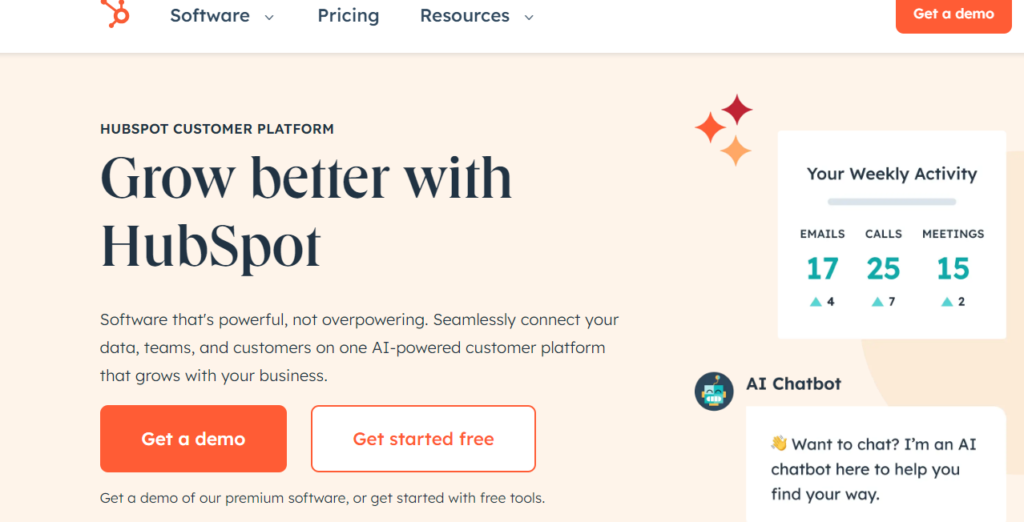
HubSpot Academy shines as a premier destination for those looking to enhance their digital marketing and sales expertise. With a robust selection of free courses, this platform is ideal for professionals eager to refine their skills and stay competitive in a rapidly evolving digital landscape.
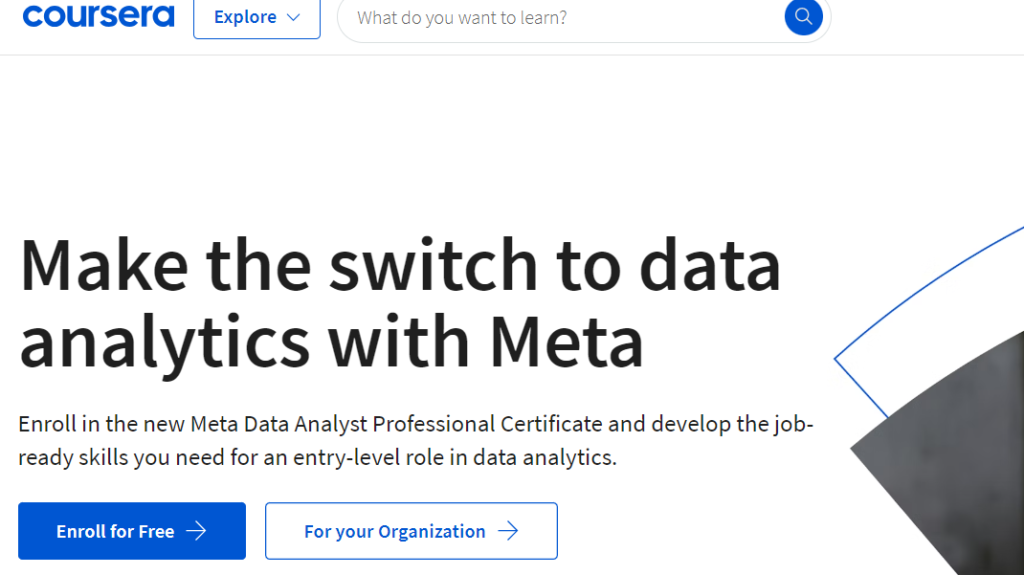
Coursera partners with top universities and organizations globally to offer a vast array of courses. It stands out for its comprehensive offerings in advanced fields like machine learning, artificial intelligence, and more. Learners can earn certificates and degrees, making it a great choice for serious academic and career advancement.
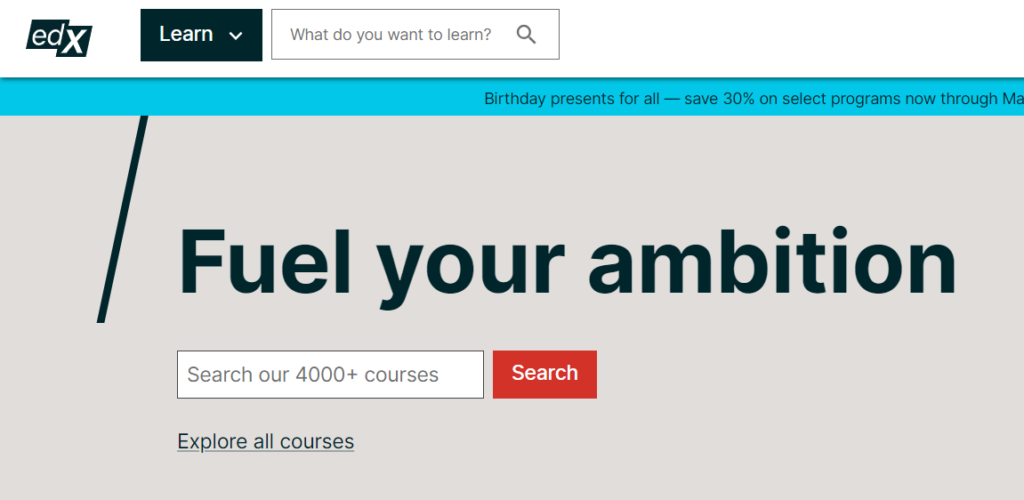
edX is another heavyweight in the realm of academic online learning, providing access to courses from prestigious institutions. It covers a wide range of subjects, from humanities to technical disciplines like data science, offering both free and paid options to accommodate diverse learning needs.
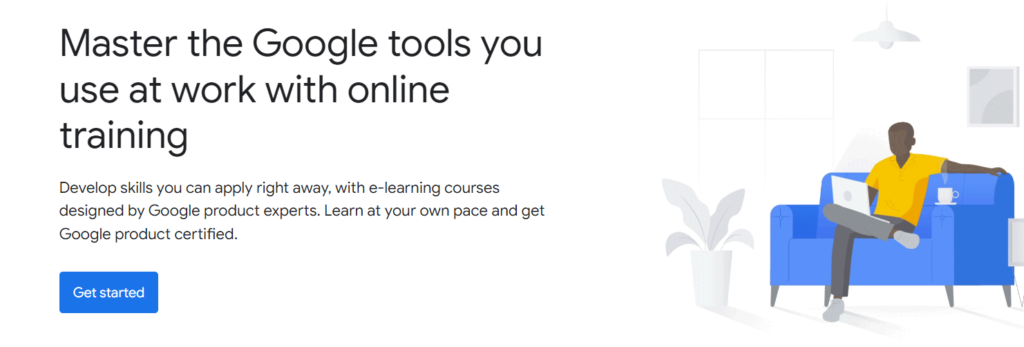
Google Skillshop is tailored for those looking to master Google products. With free courses and certifications, it is perfect for marketing professionals and anyone interested in leveraging Google tools for business and personal use.
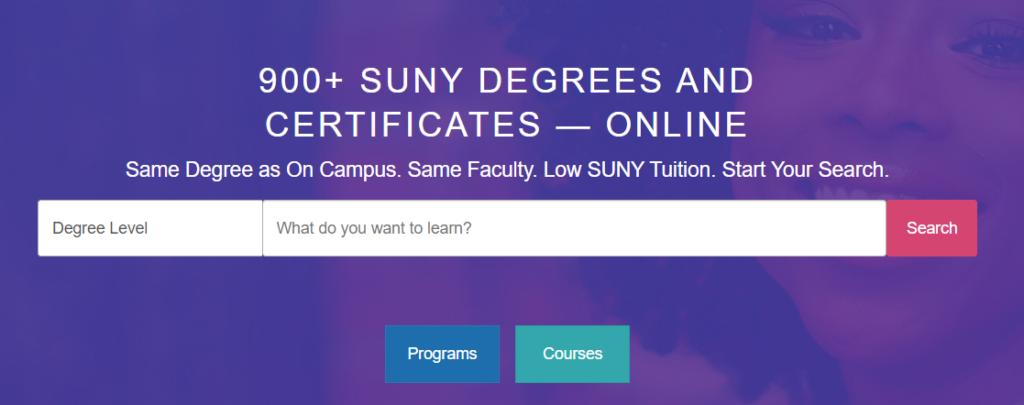
As part of the State University of New York system, SUNY Online provides high-quality educational offerings. It is especially strong in areas like data science and artificial intelligence, making it suitable for students seeking comprehensive academic credentials from a recognized public university.
The beauty of online learning lies in its diversity. You can browse online courses in digital marketing to grasp search engine optimization, or dive into computer programming with a JavaScript course. The world of data science and artificial intelligence offers in-depth lessons that prepare you for the future, while courses in web development and coding promise practical skills in today’s tech-driven landscape.
For those inclined towards creativity and self-expression, online classes in music, art, and even cooking can enrich your life. Language learning courses, on the other hand, break barriers and open doors to new cultures and opportunities. And let’s not forget about personal growth – from negotiation skills to meal planning, the variety of courses aimed at improving everyday life is astounding.

Choosing the right online course can be a daunting task. With an overwhelming number of options available across various online learning platforms, how do you decide which course is the perfect fit for you? Whether you’re looking to gain new skills for professional development, pursue a hobby, or enhance your academic knowledge, there are several key factors to consider to ensure you make an informed decision.
Clarity and Relevance: The course description should clearly outline the objectives, curriculum, and the specific skills you will gain. Ensure that the content aligns with your learning goals and is relevant to your needs or interests.
Depth of Material: Look for courses that offer comprehensive coverage of the topic. A well-structured curriculum that progresses logically will facilitate a better learning experience.
Expertise: Verify the instructor’s credentials, including their education, experience, and reputation in the field. Knowledgeable instructors with real-world experience can provide valuable insights.
Engagement: Consider the instructor’s teaching style and how they engage with students. Many online course platforms feature reviews or previews that can give you a sense of the instructor’s approach to teaching and interaction.
Flexibility: One of the primary advantages of online courses is flexibility. Look for courses that fit your schedule, especially if you’re balancing other commitments. Self-paced courses offer the greatest flexibility, while scheduled courses may provide more structure.
Interactive Elements: Courses that include interactive elements such as quizzes, assignments, and discussion forums can enhance your learning experience by encouraging engagement and allowing you to apply what you’ve learned.
Materials: Check if the course provides additional resources such as reading materials, software, or tools that will aid your learning. These resources can significantly enrich the course content.
Support: Look into the level of support offered, including access to the instructor or teaching assistants, student forums, or technical help. Support can be crucial for overcoming challenges and staying motivated.
Accreditation: If obtaining a certification is important to you, verify that the course offers a recognized certificate upon completion. Some employers or institutions may require accreditation for professional development or academic credit.
Real-World Application: Consider how the course outcomes will apply to real-world scenarios. Courses that emphasize practical skills or include portfolio-building projects can be particularly beneficial for career advancement.
Student Feedback: Look for reviews and testimonials from past students to gauge their experiences. Feedback can provide insights into the course’s effectiveness, the quality of instruction, and the overall satisfaction of learners.
Choosing the right online course requires careful consideration of several factors, including course content, instructor expertise, format, support, and outcomes. By taking the time to research and assess your options, you can find a course that not only meets your learning objectives but also provides a rewarding and enriching experience. Remember, the best course for you is one that aligns with your goals, fits your schedule, and motivates you to learn and grow.

The demand for continuous learning and skill enhancement can be conveniently met through numerous free online courses available across various platforms. Whether you are looking to dive into project management, enhance your software skills, or learn something completely new, the wealth of resources available online can be accessed from the comfort of your home and often in your own native language. Here’s a guide to some of the best free online courses you can take on well-regarded online learning platforms.
Coursera offers a wide range of free courses from universities like Stanford, Yale, and MIT. While some courses are free, others offer free auditing options where you can access all course materials for free and only pay if you want a certification. For those interested in project management, Coursera provides courses such as “Fundamentals of Project Planning and Management” by the University of Virginia which offers a robust introduction to the field.
Another excellent platform for free online courses is edX, founded by Harvard and MIT. It offers a similar model to Coursera where learners can audit courses for free or opt for a verified certificate for a fee. edX’s “Project Management MicroMasters” is a series of graduate-level courses designed to provide a professional and in-depth look at managing projects in a corporate setting.
Focusing primarily on K-12 education, Khan Academy is entirely free and offers courses in a range of subjects from mathematics to humanities. The platform uses video lectures and provides interactive exercises. For adults, their content on entrepreneurship and personal finance can also be invaluable tools for personal and professional development.
For those looking to enhance their coding skills, Codecademy offers interactive courses in various programming languages including Python, Java, and HTML. While the basic courses are free, they also offer a Pro version with more detailed projects and additional resources. This platform is ideal for learning coding in your own native language as they offer multilingual options.
While primarily known for its language skills courses, Duolingo also offers free courses in other areas that can be completed in your own native language. It’s a fun and engaging way to learn a new language or enhance your existing skills through its game-like structure and regular practice incentives.
Alison is another popular online learning platform that offers free courses on a variety of topics. Their Diploma in Project Management is a comprehensive course designed for those new to the field or professionals looking to consolidate their experience with a formal qualification. The course is free to complete, with a fee for the diploma certificate.
FutureLearn offers a diverse range of courses from universities and cultural institutions around the world. Their courses are free to access for a duration of time post-enrollment, and they offer an “Unlimited” access plan for an annual fee. For project management, you might explore courses like “Budgeting and Scheduling Projects” offered in partnership with the University of California, Irvine.
For those who want a more academic approach, MIT OpenCourseWare offers free course materials from a wide range of MIT’s courses. This includes extensive resources in technology, science, and engineering. Although more self-directed, this is an excellent way to gain high-level knowledge from one of the top institutions in the world.
One of the most enticing aspects of online courses is the ability to learn at your own pace. Whether you’re squeezing in a lesson during your lunch break or dedicating weekends to mastering a new skill, online learning adapts to your schedule. This flexibility empowers learners to juggle personal and professional responsibilities while still achieving their educational goals.
Many online courses are taught by industry leaders and experts from leading universities around the globe. This access to professional development and real-world examples is invaluable. It not only provides high-quality education but also insights into the latest trends and best practices in various fields.
The online learning ecosystem is rich with both free and paid courses. Platforms like Google Skillshop offer completely free certifications, making education accessible to all. For those looking for more specialized or advanced training, paid courses and professional certificates are available, often providing more in-depth lessons and personalized feedback.

Creating and selling online courses is a rewarding venture for first-time creators, offering the opportunity to share knowledge, connect with learners worldwide, and generate income. By focusing on in-demand subjects, exploring niche interests, and leveraging your unique experience and passion, you can create compelling content that resonates with your audience.
Remember, many online course providers and online learning platforms also offer free courses on how to create and market your own courses, providing a valuable resource for getting started on your journey.
The demand for online courses spans a wide range of subjects, from professional development to personal enrichment. Here are a few categories that consistently see high demand:

Exploring niche interests can also be a fruitful strategy for first-time online course creators. Niche courses cater to specific interests or industries and often face less competition than broader subjects. Examples include:
Contrary to what one might think, you don’t need to be a seasoned expert or have a long list of credentials to launch an online course. However, a few key experiences and skills can significantly increase your chances of success:
Creating and selling online courses is a rewarding venture for first-time creators, offering the opportunity to share knowledge, connect with learners worldwide, and generate income. By focusing on in-demand subjects, exploring niche interests, and leveraging your unique experience and passion, you can create compelling content that resonates with your audience. Remember, many online course providers and online learning platforms also offer free courses on how to create and market your own courses, providing a valuable resource for getting started on your journey.
The #1 to make money online with TikTok Search (FREE TRAINING)

The impact of completing online courses extends far beyond acquiring new knowledge. It’s about personal development, enhancing communication skills, and opening up new career paths. Online business courses, for example, can equip you with the tools to start your own venture or take your current business to new heights. Meanwhile, coding courses and web development classes prepare you for the booming tech industry.
In today’s fast-paced world, the quest for knowledge never ends. Online learning platforms are continuously updating their course materials and adding new classes to keep up with the demand for in-demand skills. This ensures that learners can stay competitive and relevant in their fields, embracing lifelong learning as a way of life.
The journey of online learning is paved with stories of transformation and success. From marketing professionals who have leveraged digital marketing courses to skyrocket their careers, to individuals who have transitioned into the tech industry thanks to coding and data science courses.
These real-life examples serve as beacons of inspiration, demonstrating the profound impact online education can have on one’s career path and personal growth.
In today’s competitive job market, continuous learning and self-improvement are key differentiators. Completed online courses not only boost your skill set but also enhance your resume and LinkedIn profile, signaling to potential employers your commitment to professional growth. Here’s how you can make the most out of your completed courses by strategically showcasing them.
Start by selecting courses that are relevant to the career path you wish to pursue. This relevance ensures that your effort aligns with your professional goals and demonstrates to employers that you are invested in your career development. It’s also crucial to complete courses from reputable platforms or institutions, as this adds to the credibility of your qualifications.
Your CV should reflect your most relevant and recent qualifications. Here’s how to include completed courses:
LinkedIn provides a great platform to showcase your continuous learning. Here’s how to add completed courses:
Join groups or discussions related to the courses you’ve completed. This not only enhances your learning but also increases your visibility among professionals with similar interests. Engaging in these groups can lead to networking opportunities and even job offers.
Apply the skills or knowledge from your completed courses to real-world projects, whether in your current job, a new position, or personal projects. Documenting these applications (such as in a portfolio) can provide concrete examples of your skills in action, adding further weight to your listed courses.
If possible, get recommendations from course instructors or colleagues who recognize the work you’ve done related to the course. These recommendations can be displayed on your LinkedIn profile and provide a powerful testament to your abilities and growth.
The job market and relevant technologies are always evolving, so continually update your CV and LinkedIn profile with new courses and skills. This shows potential employers that you are proactive about staying updated in your field.
Completed online courses can significantly enrich your professional profile, provided you strategically utilize and present them. By effectively showcasing these courses on your CV and LinkedIn profile, you not only highlight your dedication to professional development but also enhance your appeal to prospective employers. Keep learning, keep updating, and most importantly, keep showing how your learning translates into real-world expertise.

As we chart our course through the vast ocean of online learning, the opportunities for personal and professional development are limitless. The question “What courses can I take online?” is just the beginning. With a world of knowledge at our fingertips, we are all captains of our own educational journey. Whether you’re seeking to acquire basic skills, explore new interests, or advance your career, the online learning platforms are your gateway to a world of possibilities. So set sail, explore, and discover the courses that will guide you toward your dreams and aspirations.
In the realm of online learning, the horizon is always expanding. As you navigate through the vast array of courses offered, remember that each lesson, each new skill, brings you closer to your goals. The journey of learning is one of discovery, resilience, and endless potential.





